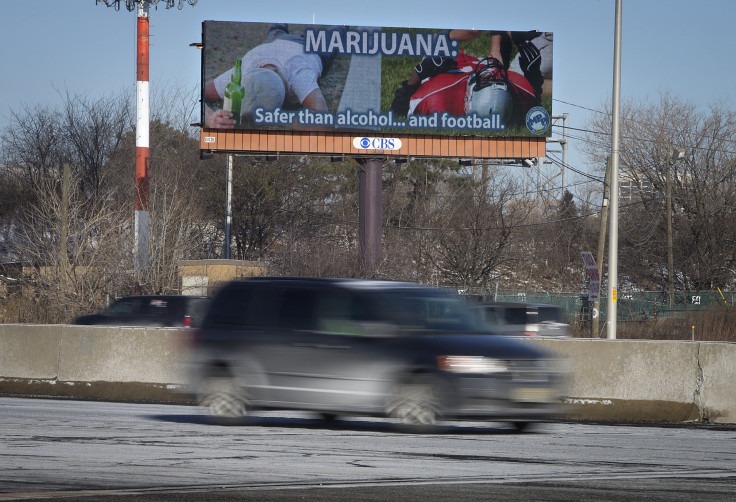Legalizing Marijuana Could Mean More Traffic Accidents, Experts Fear, But Research Unclear

Law enforcement, safety experts and concerned mothers alike have expressed fear that legalizing marijuana in the U.S. will lead to more people driving stoned. To many, the relationship is clear: Legalizing pot – a drug that impairs some senses, including response time – would lead to more marijuana-related traffic accidents and even deaths.
But research about the impact of driving high is inconclusive. Washington state, which joined Colorado in legalizing recreational pot in 2012, saw a nearly 25 percent increase in drivers testing positive for marijuana in the first full year after legalization, but no equivalent increase in car accidents or fatalities, the Associated Press reports. Some studies suggest an almost threefold increase in the number of fatal car accidents involving drivers who were high over the past 10 years; others have concluded that driving while high does not significantly change the risk of being involved in a crash.
Law enforcement in Oregon, a state with a pot-friendly attitude that will likely legalize retail weed this November, has recognized the need to monitor for marijuana-impaired drivers coming from Washington, but officials there have said their bigger concern is trafficking. “We’re not preparing differently than we would any other day of the year,” Oregon State Police Lt. Gregg Hastings told International Business Times. “We don’t have any plans to be sitting on borders” targeting Washington license-plate holders, he said.
One experiment conducted in Washington last year had drivers who were four to seven times over the state’s legal limit for driving under the influence of marijuana – a limit set at 5 parts per billion of THC, the psychedelic ingredient in cannabis – navigate a closed driving course while law enforcement monitored their behavior. At the same time, driving school instructors gauged their facility to operate a moving vehicle. Only after the test subjects had smoked nearly a gram of pot each did the driving instructor deem them unfit to operate a car.
Some researchers have suggested that driving high is actually much safer than driving drunk or even, in some cases, driving sober. Moderately stoned drivers are more aware that they are intoxicated than drunk drivers are. Therefore, stoned drivers tend to drive more slowly, leave more space between cars, and avoid risky actions such as passing other vehicles, according to Bustle.
"We see the legalization of marijuana in Colorado and Washington as a wake-up call for all of us in highway safety," Jonathan Adkins, executive director of Governors Highway Safety Association, told the Associated Press. "We don't know enough about the scope of marijuana-impaired driving to call it a big or small problem. But anytime a driver has their ability impaired, it is a problem."
© Copyright IBTimes 2025. All rights reserved.






















